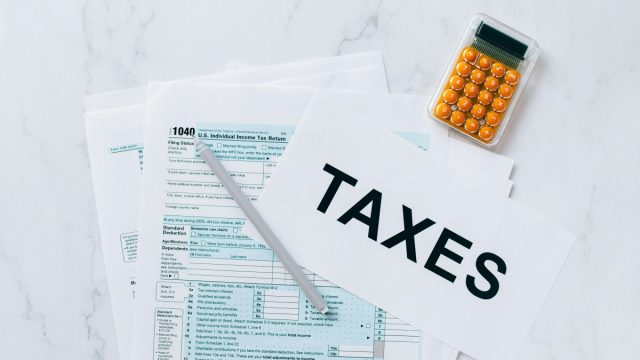Freelancing offers unparalleled freedom and flexibility, allowing individuals to pursue their passions and craft their schedules. However, this independence comes with its own set of challenges, particularly in managing finances and taxes. Unlike traditional employees, freelancers must navigate complex tax obligations without the assistance of an employer’s payroll department.
Fortunately, in the digital age, numerous tools are available to streamline the tax management process for freelancers. By leveraging these digital solutions, freelancers can remain compliant with tax regulations, maximize their deductions, and stay organized throughout the year. The IRS fresh start program updates can provide essential relief and support for those finding tax season particularly daunting.
Comprehensive Tax Software for Freelancers
Contents [show]
The most helpful tool for freelancers to handle their tax matters is purchasing professional tax software created with self-employed people in mind. Services such as QuickBooks Self-Employed and Turbo Tax Self-Employed have an enhanced set of tools and services specific to freelancers. As such, these platforms make it easier to work with by offering solutions that include expense tracking, invoicing, and tax filing all in one app.
For example, QuickBooks Self-Employed can independently categorize expenses, track your mileage, and integrate with your bank statements to ensure no missing costs. An example is the period of paying taxes; it can generate elaborate reports and gauge quarterly tax remittances, hence enabling one to meet the instituted obligations.
TurboTax Self-Employed takes it up a notch: it comes with live access to tax professionals familiar with freelancing taxation. Thus, the automation of some of the processes, together with the guidance from the experts, makes it possible for freelancers to file their taxes without any doubt.
Expense Tracking Apps: Keeping Finances in Check
The consideration of expenses is vital when working as a freelancer, mainly because they dictate the amount of taxable income and possible deductions. Manual preparation of receipts and documentation of all expenses incurred could be more convenient to prepare and accurate. Some famous and efficient apps that help freelancers track their costs locally include Expensify and Shoeboxed, which allow freelancers to scan their receipts and categorize them effectively.
Expensify allows the receipts to be deleted once the amount is charged to the credit card or reimbursed from the bank statement. It can also create expense reports aligned with the IRS guidelines, making it easy for the company to record all eligible expenses.
While Expensify is more about reimbursing and tracking expenses, Shoeboxed is more about scanning paper receipts. Freelancers can collect all the receipts in an envelope and mail them to the company, or if the company has an application for accessible receipt collection, they can gather all the receipts and scan them into the application, which will make it easier for freelancers to search through their expenses during the tax period.
Time Tracking Tools: Accurate Billing and Tax Preparation
Regarding time tracking, freelancers must be precise with their billable hours to invoice their clients and estimate their income. Freelancers require time-tracking services such as Toggl or Harvest for billing purposes and data functionality when filing taxes.
Toggl is a helpful tool since it provides a straightforward way of tracking the time spent on work for a specific project and client. It produces comprehensive reports that can be employed to assess efficiency and revenue. These reports can also be helpful, especially when filing taxes, as they record the income earned from different sources.
Time tracking in Harvest is one step up and is combined with expense management and invoicing tools. This approach of having all information in one place makes it easier to prepare all the various tax returns that every business or individual is supposed to file with the relevant authorities.
Invoicing Software: Ensuring Prompt Payments and Accurate Records
Freelancers need to invoice promptly and systematically not only to track their earnings but also to maintain a steady cash flow. Some examples of digital invoicing tools for businesses include FreshBooks and Wave, which help generate and deliver invoices, monitor payment, and manage customers’ accounts.
FreshBooks is easy to navigate and has tools for generating invoices and tracking time and expenses on a project. Financial reports are available, which can be shared clearly and exported for taxes if needed. Wave, a free accounting software, provides similar functionality and can be linked with bank accounts/credit card statements to obtain a consolidated financial position. That way, income records can be easily made and updated using invoicing software, making tax filing easier.
Cloud Storage Solutions: Organizing Important Documents
Record keeping is critical in addition to time tracking, particularly regarding freelancer taxation. Numerous online services allow users to store their documents safely and efficiently; these include Google Drive and Dropbox, which can be effectively used for storing and sorting receipts, invoices, and other financial documents needed for tax returns.
Freelancers can use Google Drive to store files and easily share files with other apps. They can create folders for accounts and freelancers, transfer files to accountants, and access the files from any device. Dropbox provides this functionality, as it provides enhanced functionality for synchronizing folders through offline accessibility to documents. In the next section, we see how cloud storage makes the management of freelancers’ financial documents more efficient during tax periods.
Conclusion
Dealing with taxes when you are a freelancer can be quite a challenge; however, the freelancing world provides several methods that can help to make the process considerably more manageable. Tax programs, accounting applications, time management tools, billing software, and storage services are among the numerous tools that can help freelancers organize and comply with taxes and manage their financial health.
When incorporated into freelancers’ operations, the following tools help reduce workload, hence minimizing tax management issues. For people who require further help, services like the Fresh Start Program, formulated by the Internal Revenue Service, are provided to ease the tax period.


